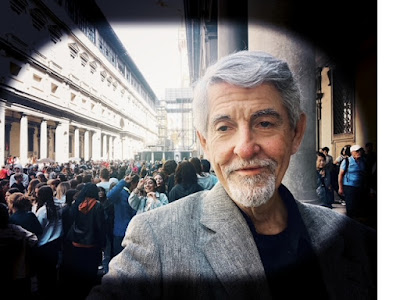 |
| Trying to stay warm on a chily night. |
Part of my interest stems from the discovery that Minnesota has had a moratorium on new nuclear power plants since 1994 while simultaneously closing coal plants and embracing a net-zero by 2040 carbon policy. Some expert in the energy field believe this 2040 target will be impossible to reach solely by "approved" renewable energy sources --solar, wind, biomass, rivers.
1. Three Grids. Before studying this I believed that the country was made up of a patchwork of grids. In one sense it is, but in another there are only three systems in place. The Pacific Coast has its own grid. Texas is its own grid. The rest of the country operates on the same frequency, which is good because the different regions can draw energy from other regions if on the same system. Texas, being its own system, was unable to pull energy from surrounding grids when it collapsed a couple winters ago.
2. Contradictory Objectives. Nuclear is safe and produces zero carbon, but Green advocates are opposed to it. For this reason, efforts to lift the nuclear moratorium in Minnesota have failed. Proposals to do so remain locked up in committee and never get a hearing on the floor at the Capitol in St. Paul. As one nuclear expert I spoke with put it, "The belief that we can meet future energy needs by renewables alone and without nuclear is La La Land thinking."
3. Wind and Solar energy are intermittent. They are not within our power to control. Wind is erratic and the sun sometimes hides its face for days on end. Power needs are ongoing day and night. Which lead to this concern...
4. Power Plants generate energy to meet present need. The energy is used as needed. There is no "storage" depot where it gets accumulated for future use. This applies to wind and solar as well. You can't store today's Wind and Solar power for future use when needed (other than for a few short hours).
5. Building new power plants takes twice as long and costs twice as much as it ought to. The reason is primarily caused by aggressive opposition, legal obstacles, red tape.
6. No one died at Three Mile Island and there was only one death in Fukushima. 36 people die per year from dog bites, and bee stings kill twice as many as that.
In 2022, 10 people died in the United States coal mining industry, which is 10 of 66,172 occupational fatalities.
7. Fears concerning nuclear waste are overblown. People worry about nuclear waste. In truth, all the extremely dangerous nuclear waste ever produced since the start of our nuclear energy age would currently fit into an Olympic sized swimming pool or (if you prefer) the leaning Tower of Pisa.
How dangerous is the other radioactive material? Consider this: According to SpringerLink, nearly 10 million patients each year undergo radioactive material injection or ingestion in medical procedures.
* * *
I learned a lot more than this, but for today these are a few things off the top of my head that I'd not thought about before.
LINK TO ORIGINAL ARTICLE:
Is Our Energy Grid at Risk?































